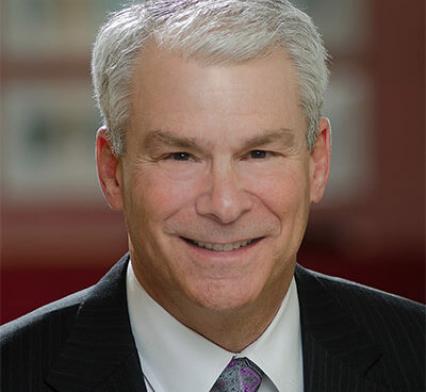Healing The World
As a leader – as an American – these recent weeks have been a cause for self-reflection. Like, I’m sure, all of you, I’ve been examining my own beliefs and behavior and that of my company. My board and I are proud of our company, and believe we set a good example of fair employment practices and good corporate citizenship both in and outside our walls.
But are we as good as we want to be? I’ve come to the conclusion that the answer, despite our many successes, is “not yet.”
At the beginning of June, I sent a heartfelt email to our 650 employees, expressing my personal anguish at the killing of George Floyd and talking about the need for all of us to do what we can to embrace the Jewish principle my parents instilled in me: “tikkun olam,” or “heal the world.” The email generated an outpouring of responses from our employees, and it was clear they were hungry for dialogue and action. So our first action was to create opportunities to hear more about how our employees were thinking and feeling about race relations in our community and our company. We launched focus groups and a confidential online survey, and gave our leaders tools to talk with their team members.
Not surprisingly, we’ve gotten a range of reactions. While the majority of our employees have welcomed the dialogue, some have felt that we are being inappropriately political and said they don’t feel comfortable expressing dissenting views. Others have pointed out the absence of people of color at our highest executive level, and asked if we are really walking the talk.
I know my company isn’t alone in this. And navigating these waters isn’t easy for any of us. We have to honor a range of viewpoints while still identifying and steering toward a North Star that exemplifies what we want our companies to stand for.
A consultant we’ve engaged to help us create the workplace we want warned us of the need to be thoughtful about not harming people through this work, and to create “spaces of grace” for people who come with different perspectives. Context is key: if we are not clear and specific about what we mean by equity and inclusion, we can inadvertently create defensiveness.
At the same time, though, a goal of this work can’t be for everyone to emerge unscathed. In the process of deciding what our companies stand for, and what it will take to get there, we must have uncomfortable conversations. And it’s important to approach those as Stephen Covey advises: “Seek first to understand, rather than to be understood.” The point is not to change their mind, or even your own. The point is to try to learn and understand the perspective of the person you’re speaking with – to get to a place of mutual respect and understanding.
As this work evolves, we may make some decisions with which all of our employees do not agree. If we do so transparently and respectfully in faithful pursuit of clearly articulated goals and actions, we can play a part as companies and individuals to heal the world honorably. To my mind, it’s never been more urgent.
